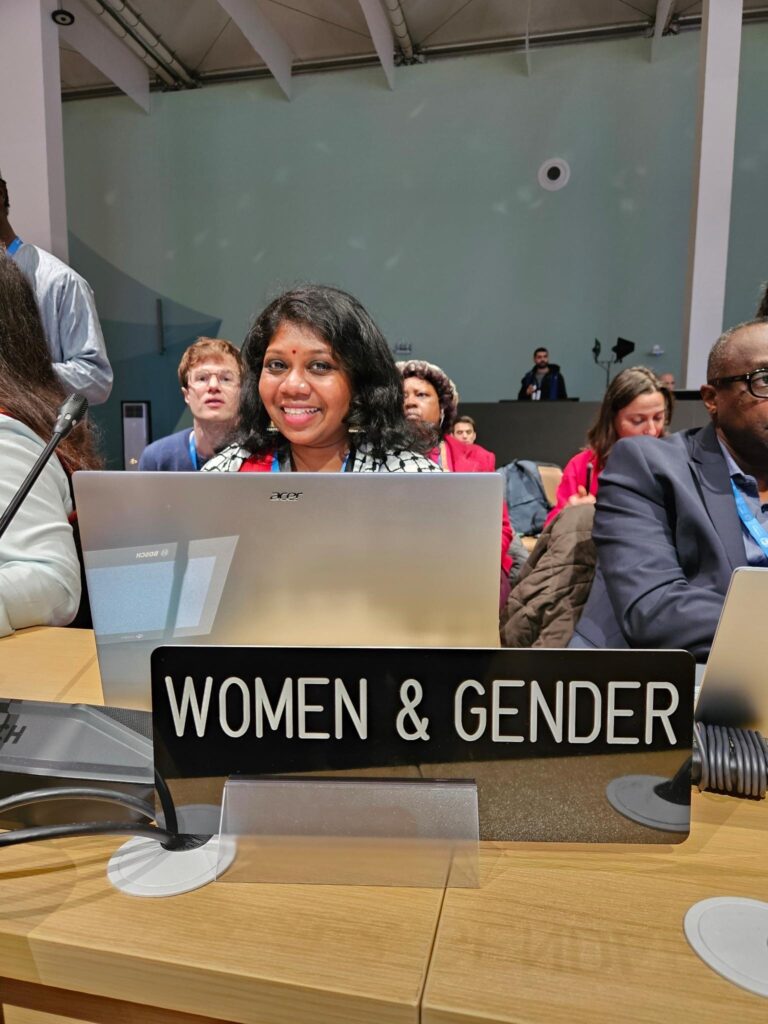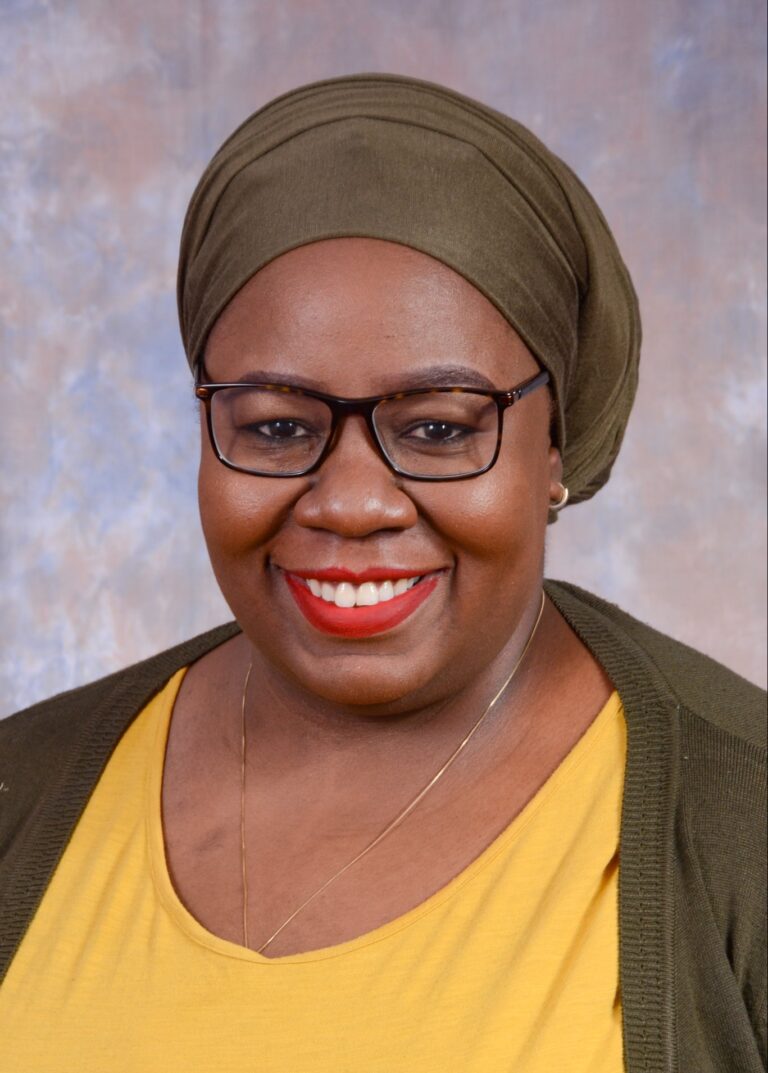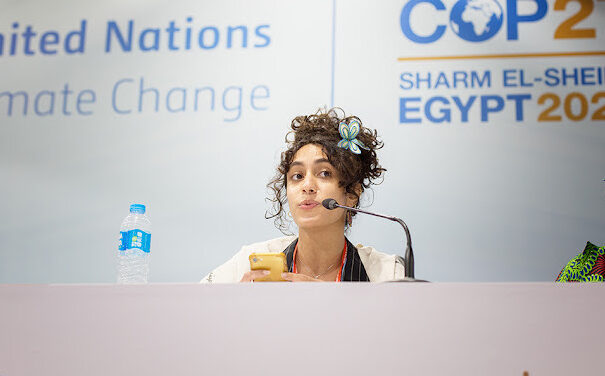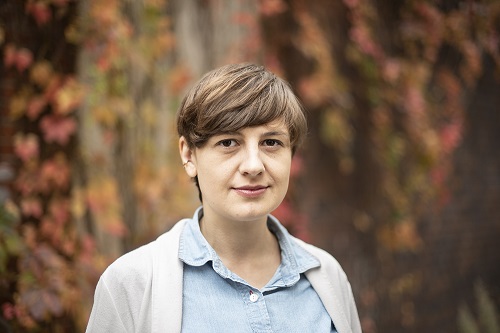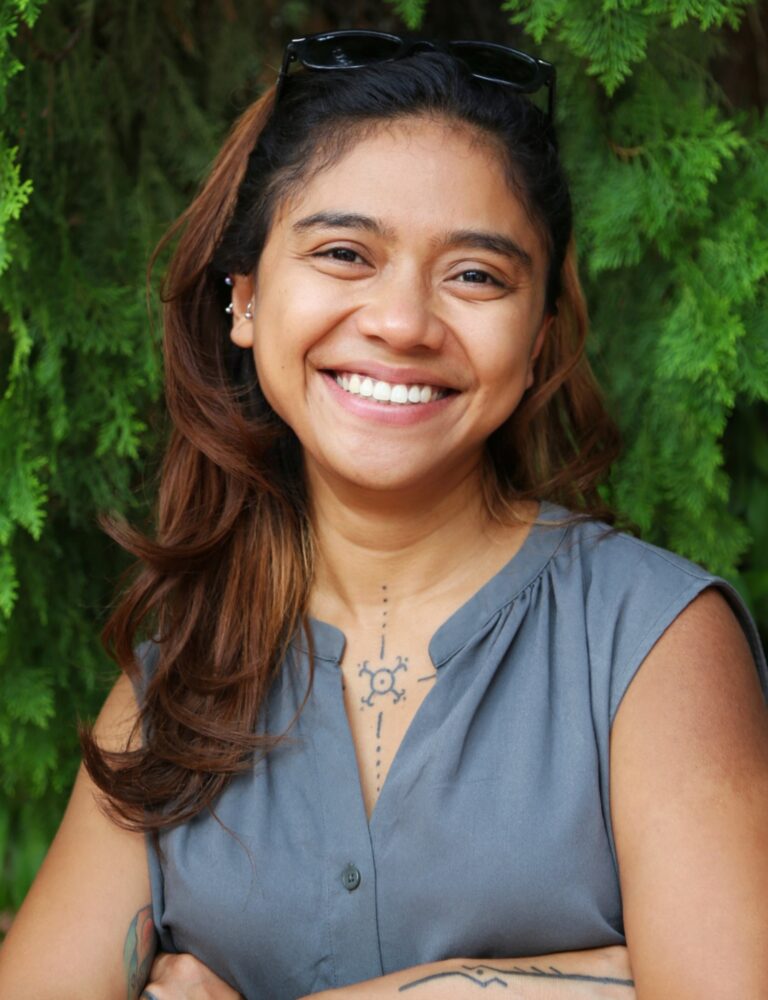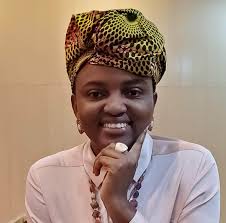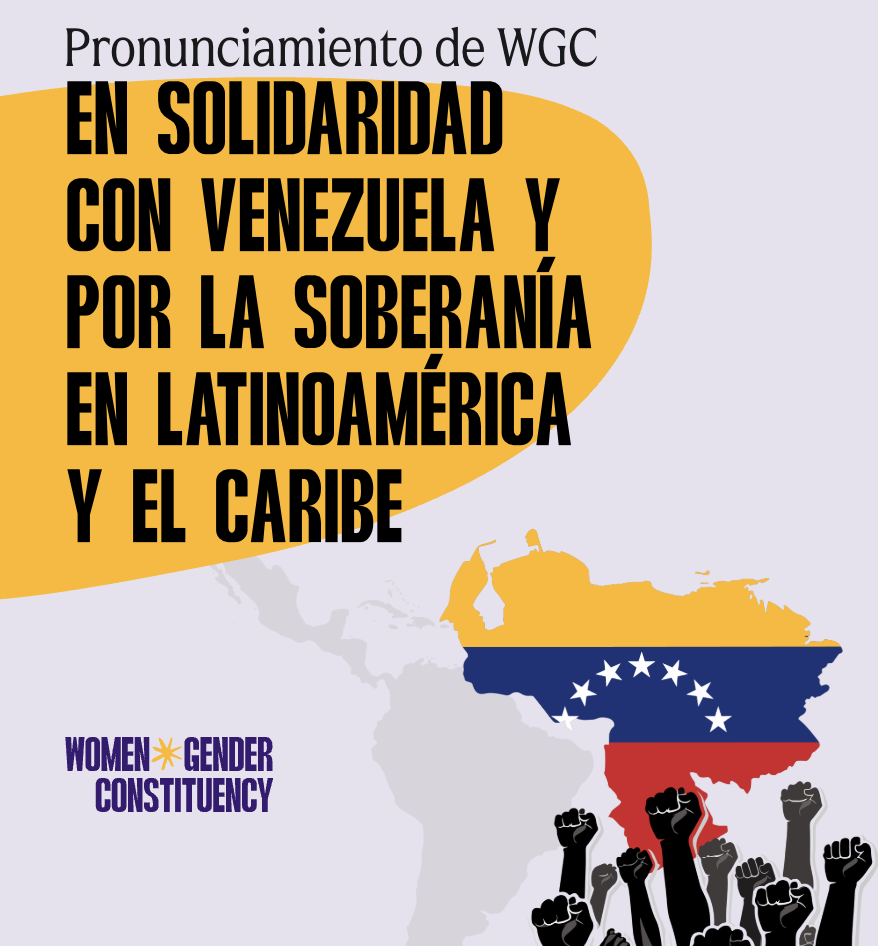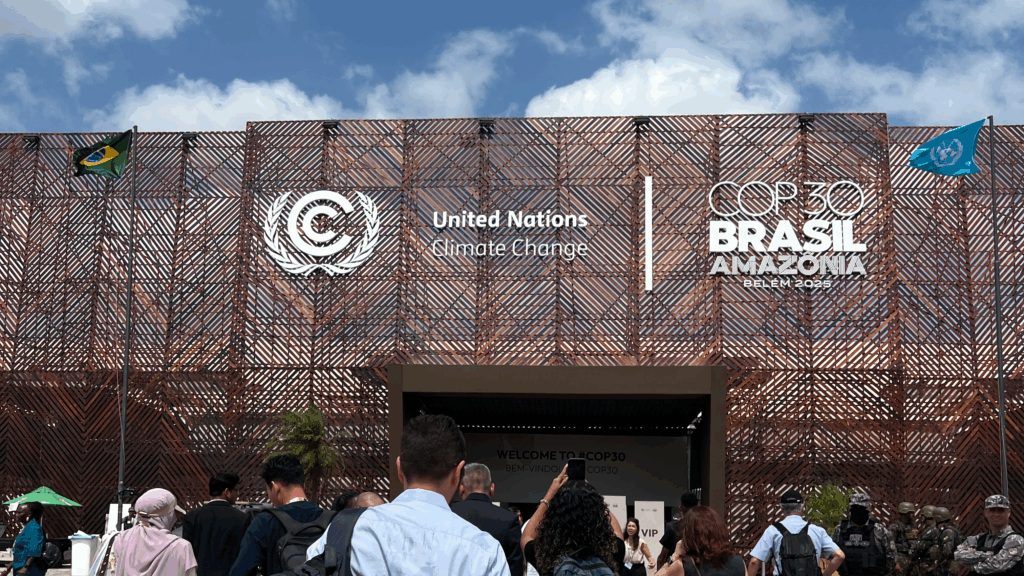about us
The Women and Gender Constituency (WGC) is one of nine stakeholder groups formally recognized by the UNFCCC. We’re made up of 54 accredited organizations and a broader advocacy collective of over 1,000 individuals advancing gender equality and climate justice. Through our working groups, we coordinate technical advocacy across all negotiating tracks and strengthen feminist participation in the UNFCCC process.
We are both a political voice and a platform for collective action – connecting movements to policymaking while centering the lived realities of those most impacted.

Mission
To build collective power and advance feminist climate action by embedding gender-just policies and practices within the UNFCCC and beyond.
Vision
A world where gender equality and climate justice move forward together – and where those most affected lead the solutions.
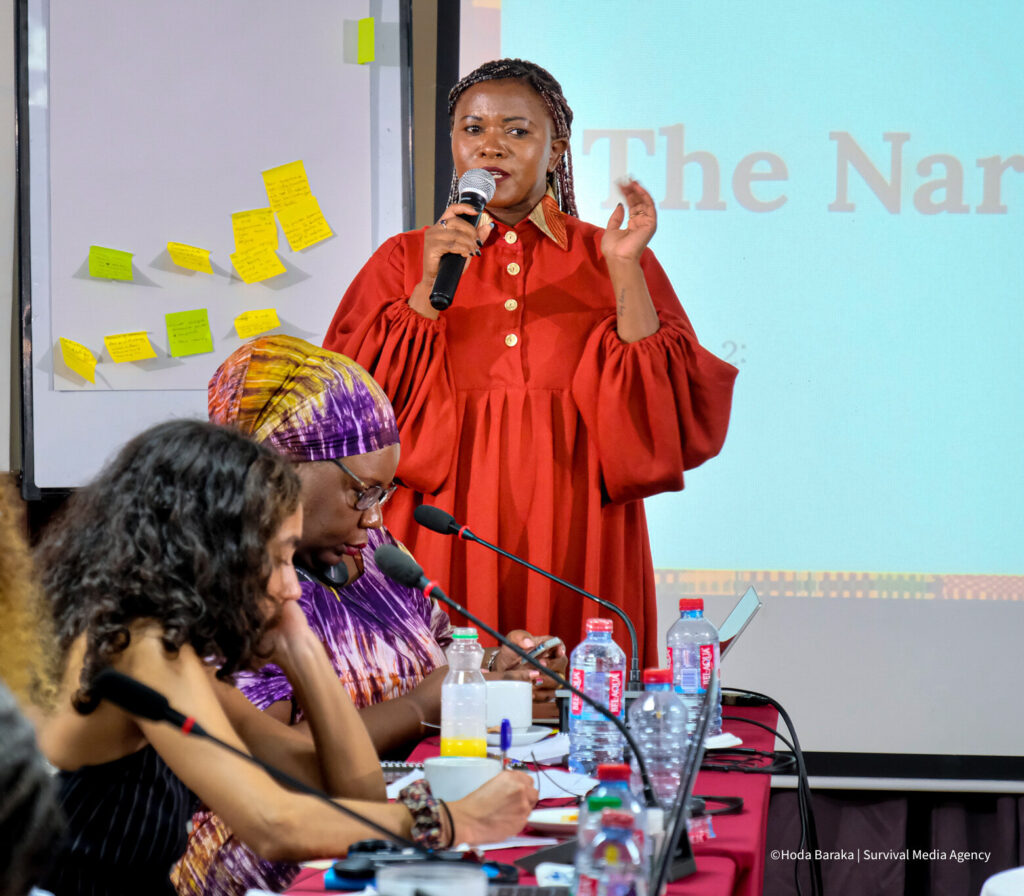
We work towards a world rooted in:
- Bodily autonomy, racial justice, gender equality
- Intersectionality
- Care over Capital
- Community-led solutions over corporate control
- Food, water, energy, and economic sovereignty
- Just transitions and regenerative economies
our roots
The WGC was formed to connect gender justice advocates with the global climate policy process. Since the 1992 Earth Summit, civil society has played a key role in shaping international climate agreements through the UNFCCC. Each year, governments gather at the Conference of the Parties (COP) to negotiate climate action—and accredited observer groups like ours work to ensure frontline voices are heard.
To help coordinate this engagement, the UNFCCC recognizes nine official constituencies, representing groups such as youth, Indigenous Peoples, trade unions and environmental NGOs. Founded in 2009 by five organizations, Women in Europe for a Common Future (WECF), Network on Gender and Sustainable Energy (ENERGIA), Women for Climate Justice (Gender CC), LIFE e.V. and Women’s Environment and Development Organization (WEDO), the WGC was officially recognized by the UNFCCC in 2011.
The WGC represents those working at the intersections of gender, environment and climate justice—bringing a structural, feminist lens that challenges root causes rather than simply adding women into broken systems.
As participation in the climate talks continues to grow and space becomes more competitive, the role of Constituencies has become even more critical. We help ensure equitable access, coordinated advocacy and collective power in increasingly complex negotiating spaces.
WEDO serves as a coordinating body for the WGC.
Our Governance
The WGC is guided by collective leadership rooted in transparency, accountability and solidarity. At the heart of this model is our Facilitative Committee, an elected group of individuals from across our network who voluntarily steward the Constituency’s work.
From within this group, two co-focal points are selected to represent the WGC in formal processes, rotating as needed. The Committee coordinates shared strategy and strengthens collective advocacy across the UNFCCC.
This structure is not about any single organization – it’s about building something bigger than all of us. It reflects the power of feminist organizing: decentralized, collaborative and designed to last.

